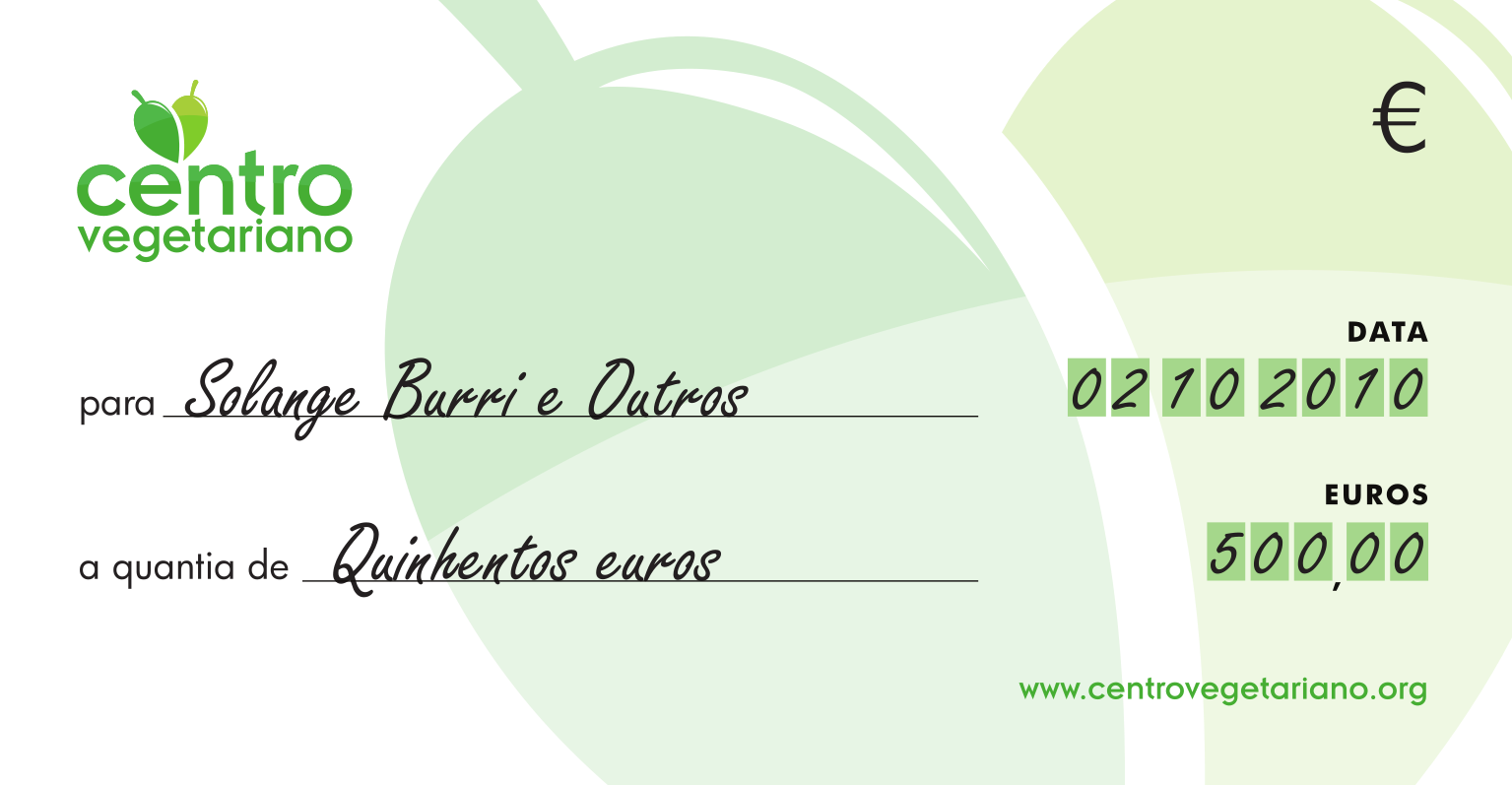


In 2010, Centro Vegetariano promoted an academic merit contest, with the goal of promoting academic work and research on the vegan and vegetarian diets. The prize was a check of 500 euros for the best paper.
The papers submitted were reviewed by a panel of qualified experts in various fields. Each paper was reviewed by at least 3 judges, who graded the papers in terms of scientific accuracy, relevance, novelty and quality of the argumentation.
The winning paper received the prize of 500 Euros. Another excellent paper received a certificate of merit.
Abstracts of the winning papers are published below.
Title: Production of vegan sausages for children
Author: Solange Burri, Isabel Tato, Maria Leonor Nunes and Rui Morais
In Europe, school-age children have high rates of obesity, and Portugal is not an exception, showing significant rates of overweight (30 %) or obesity (12 %).
Professionals from Health, Education and Industry sectors, have come together worldwide, with the goal that obesity epidemic will be the first eradicated disease from the XXI century. To overcome this problem it is essential to promote, in every possible way, actions that reduce the serious impact of such sickness.
The food industry has, therefore, a great opportunity to develop new and functional food products, not just to please a more demanding consumer, but also to act in a prophylactic way, preventing food-related disorders instead of just solving them. And the younger the target consumers are, the more effective this intervention will be.
The development of a product based on the seaweed Gracilaria vermiculophylla for infant consumption, was based on such a need and aims to raise awareness of the Food Industry to alternative marine resources, which favours Portugal.
In addition to this, the aim is to encourage consumption of organic vegetables among younger consumers and offer to parents a healthy option of processed food, demonstrating the versatility that vegetables should acquire to attract children choices.
In Portugal, organic farming represents a market that is expanding but the demand is still deficient. The assessment of market developed in this study confirm that the high prices (45 %), a distribution network still weak (23 %) and a lack of awareness of most consumers (15 %) represent the main obstacles to overcome.
The high susceptibility and the refined organoleptic demand of the child consumer had required the incorporation of only 0.8 % of G. vermiculophylla, as a functional salt, in the product designed. For the evaluation of the iodine content, it was necessary to adjust a titration, and regarding the dose established of the child consumption, the value reached by product dose was of 321,5 μg of this micronutrient.
The sensory analysis carried out to the three varieties of vegetable based sausages designed - sugar-beet, carrot and tomato – with herbs and tofu, received a good acceptance by the random consumers who had collaborate in this initiative.
Seaweeds represent a valuable resource that involves a sustainable use but also special food safety criteria. Their toxicological profile must be compared to their life cycle in different regions. Thus, european legislation could be finally extended to their use in human feed, thus contributing to Gracilaria commercialization.
Title: Vegetarian diet: what is there to know about the role selenium plays in protecting against heart diseases?
Author: Liliana Ribeiro dos Santos
Vegetarian diet and its implications on health have been intensively studied over time. Since the creation of the vegetarian society, (vegetarian, from the Latin vegetus, meaning 'alive') the concern about the dual benefit / risk or deficiency has been the target of great research and interest among the scientific community. The aim of this work is based on several questions about the role of a vegetarian diet on the risk of developing various diseases associated with a particular genetic polymorphism. The essential idea is to take the example of vegetarians, that may present the correct levels of selenium in their diet, and try to understand the degree of protection they get by following their diet. In fact, the populations genotyped which are at risk of developing heart disease or neoplasic disease due to the presence of the polymorphism SEPS1-105G/A would be advised the use of selenium as adjuvant or protective therapy.
Since the contest was open only to Portuguese authors, the original papers are available only in Portuguese. Interested readers, please contact VEGAN 2050 for more information on the papers or translations.
Insert date: 2010-10-06 Last update: 2010-10-06